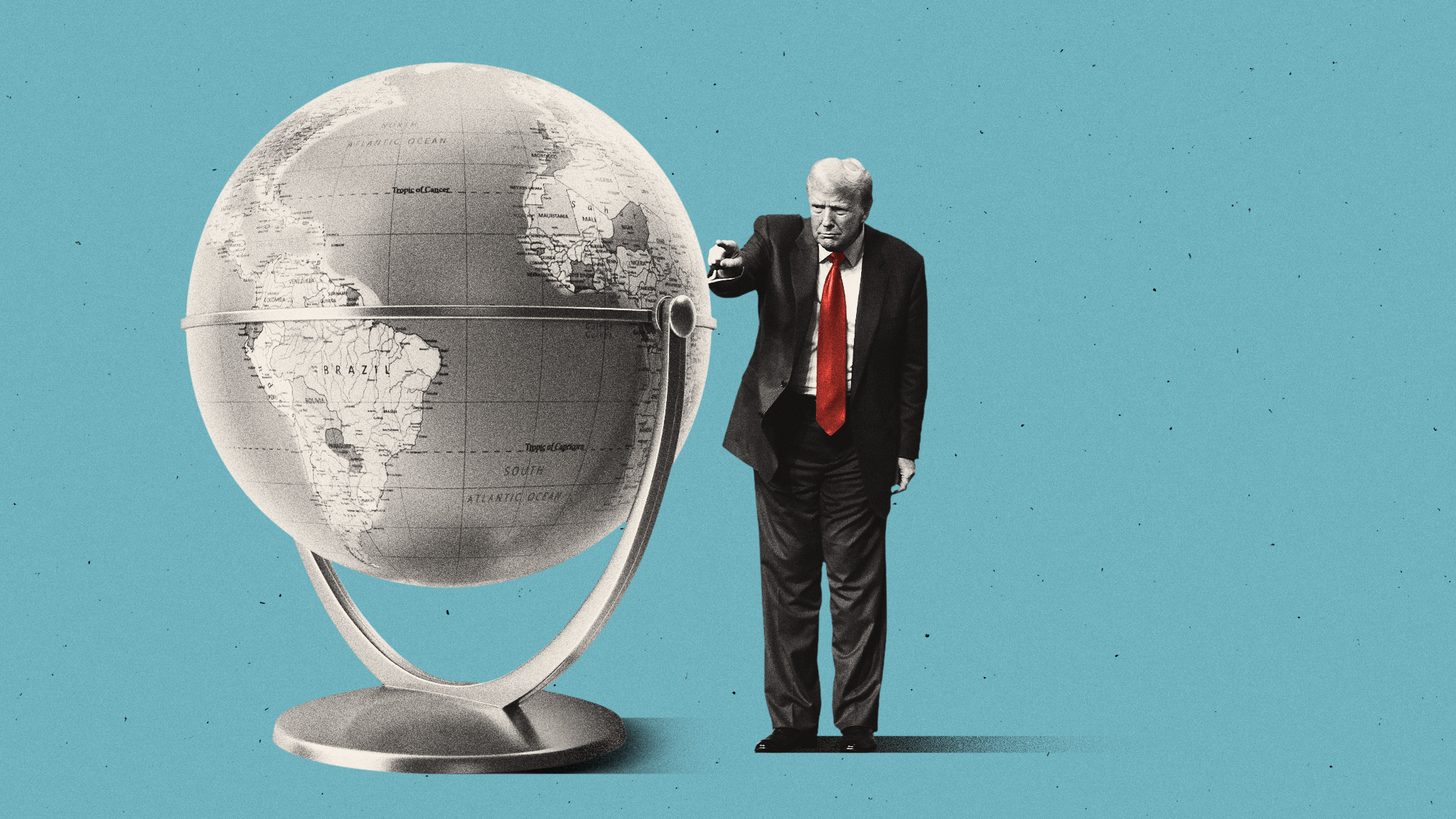Is Israel finally feeling the heat on Gaza?
Benjamin Netanyahu allows aid to resume amid mounting international pressure and 'growing internal turmoil'

A free daily email with the biggest news stories of the day – and the best features from TheWeek.com
You are now subscribed
Your newsletter sign-up was successful
Benjamin Netanyahu has lifted the blockade of humanitarian aid to Gaza after admitting that Israel's allies were "approaching a red line" in their support over the risk of famine in the territory.
The Israeli prime minister's decision to allow limited food supplies into the enclave for the first time in nearly three months is "highly unpopular" among some of his ministers but comes "amid mounting US pressure" and growing divisions at home, said The Times of Israel.
What did the commentators say?
The complete blockade on fuel, food and medicine entering Gaza was "meant to ramp up pressure" on Hamas, said The Independent. But it appears to have had the opposite effect.
The Week
Escape your echo chamber. Get the facts behind the news, plus analysis from multiple perspectives.

Sign up for The Week's Free Newsletters
From our morning news briefing to a weekly Good News Newsletter, get the best of The Week delivered directly to your inbox.
From our morning news briefing to a weekly Good News Newsletter, get the best of The Week delivered directly to your inbox.
"Israel – let me be frank – has been played like a violin," said Matthew Syed in The Sunday Times. "With each bomb blast, each picture of weeping children, each story of operations undertaken without anaesthesia, Hamas has secured the propaganda that no amount of paid advertising could ever procure. The blockade is, in that sense, priceless."
Donald Trump, previously one of Israel's staunchest international allies, said on Friday that it was time to take care of those "starving" in Gaza. Reports in Israeli media claim that the US agreed to pressure Israel into resuming humanitarian aid as part of an indirect arrangement with Hamas for the release of Israeli-American soldier Edan Alexander last week.
At the same time, a Dutch proposal to reassess the EU's economic and political ties with Israel in response to the situation in Gaza has been "steadily gaining support among a group of member states", said Euronews. The EU is Israel's biggest trading partner. Eight countries have now "explicitly endorsed" the idea that Israel is in violation of international humanitarian law and while this is "far short of the unanimous support needed, it signals a shift in thinking among the 27".
Even hardline members of Netanyahu's cabinet have accepted the necessity to relent, in the face of growing international hostility. Far-right finance minister Bezalel Smotrich – one of the driving forces behind the months-long blockade – said that the resumption of aid deliveries to the strip was necessary "to dispel the lies of starvation", said The Times of Israel. While the blockade had "created very great pressure on Hamas", he said, its execution "needs to be moderated so that it does not explode in our faces".
A free daily email with the biggest news stories of the day – and the best features from TheWeek.com
What next?
Israel's "genocidal campaign in Gaza" has begun to fracture the "kind of international exceptionalism that shielded it from accountability", said Mehmet Rakipoglu in Middle East Eye. But it may in the end be "growing internal turmoil" that forces Netanyahu's government to end the war.
Israel is now "closer to a civil war than ever before", said former Israeli PM Ehud Olmert in Haaretz, and The New Arab reported that the Israel Defense Forces is facing "a crisis of dissent", with reservists refusing call-ups and veterans speaking out against the war.
The Gaza war has "increasingly become Israel's Vietnam", said Rakipoglu, "an unwinnable campaign marked by military overreach, strategic misjudgment and growing political costs".
Like its American ally half a century ago, Israel has found itself "trapped in a campaign it cannot decisively win, facing a resilient opponent, internal dissent and mounting international isolation".
-
 ‘Those rights don’t exist to protect criminals’
‘Those rights don’t exist to protect criminals’Instant Opinion Opinion, comment and editorials of the day
-
 Key Bangladesh election returns old guard to power
Key Bangladesh election returns old guard to powerSpeed Read The Bangladesh Nationalist Party claimed a decisive victory
-
 Judge blocks Hegseth from punishing Kelly over video
Judge blocks Hegseth from punishing Kelly over videoSpeed Read Defense Secretary Pete Hegseth pushed for the senator to be demoted over a video in which he reminds military officials they should refuse illegal orders
-
 Munich Security Conference: a showdown between Europe and Trump?
Munich Security Conference: a showdown between Europe and Trump?Today’s Big Question Report suggests European leaders believe they can no longer rely on the US for military support – but decoupling is easier said than done
-
 New START: the final US-Russia nuclear treaty about to expire
New START: the final US-Russia nuclear treaty about to expireThe Explainer The last agreement between Washington and Moscow expires within weeks
-
 Would Europe defend Greenland from US aggression?
Would Europe defend Greenland from US aggression?Today’s Big Question ‘Mildness’ of EU pushback against Trump provocation ‘illustrates the bind Europe finds itself in’
-
 Greenland, Colombia, Cuba: where is Donald Trump eyeing up next?
Greenland, Colombia, Cuba: where is Donald Trump eyeing up next?Today's Big Question Ousting Venezuela’s leader could embolden the US administration to exert its dominance elsewhere
-
 Did Trump just end the US-Europe alliance?
Did Trump just end the US-Europe alliance?Today's Big Question New US national security policy drops ‘grenade’ on Europe and should serve as ‘the mother of all wake-up calls’
-
 Is conscription the answer to Europe’s security woes?
Is conscription the answer to Europe’s security woes?Today's Big Question How best to boost troop numbers to deal with Russian threat is ‘prompting fierce and soul-searching debates’
-
 Trump peace deal: an offer Zelenskyy can’t refuse?
Trump peace deal: an offer Zelenskyy can’t refuse?Today’s Big Question ‘Unpalatable’ US plan may strengthen embattled Ukrainian president at home
-
 Vladimir Putin’s ‘nuclear tsunami’ missile
Vladimir Putin’s ‘nuclear tsunami’ missileThe Explainer Russian president has boasted that there is no way to intercept the new weapon